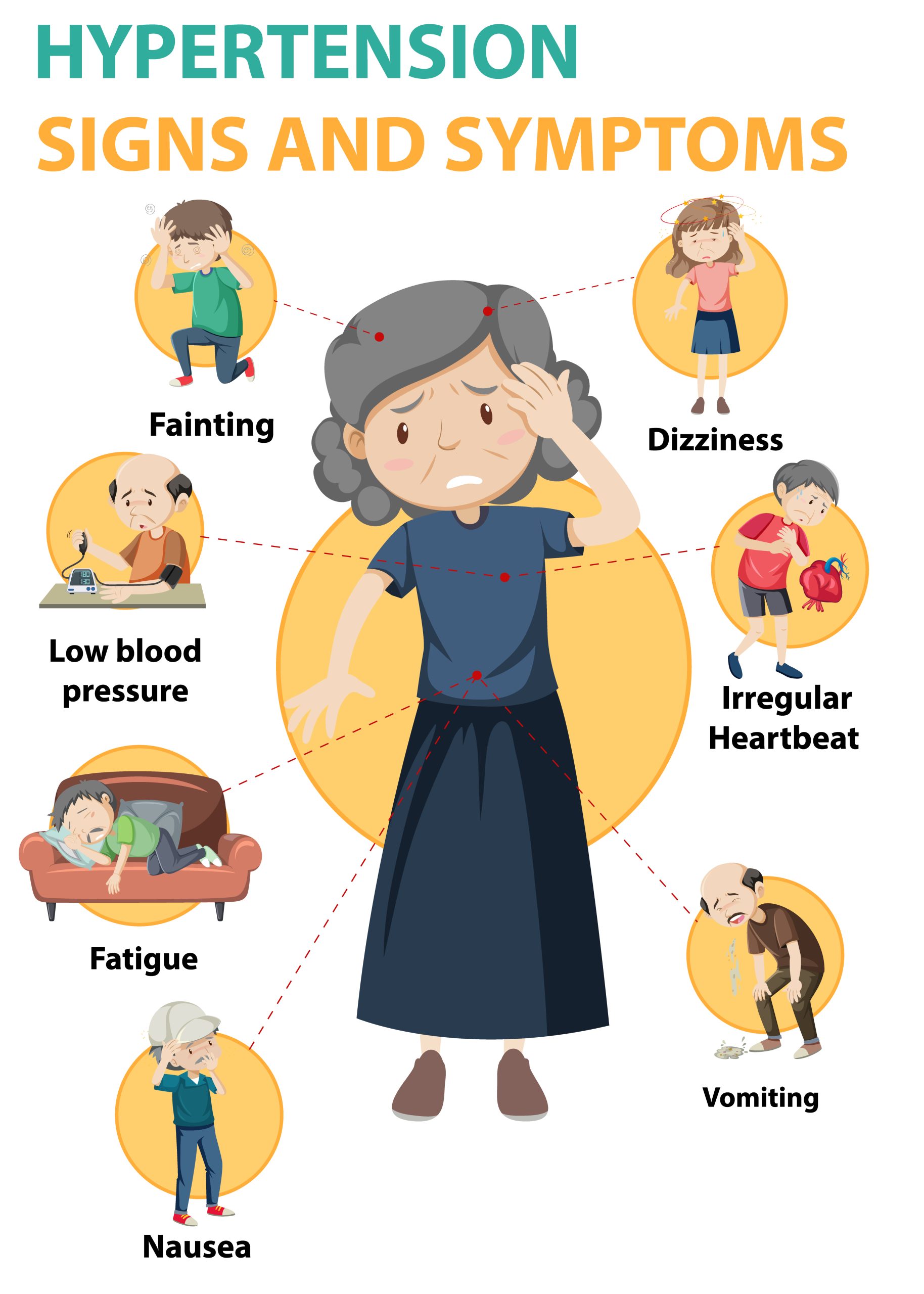Monitoring blood pressure at home: Tips and techniques

Understanding hypertension: Causes, symptoms, and risk factors
25 Jun 2024
Whenever you put excessive pressure on something, it starts wearing out sooner than it’s supposed to. Moreover, when you don’t do anything about the wear and tear, it minimises the possibility of things getting better. It is true for all the parts of our body as well. But today, we will talk about how excessive pressure on your artery walls, something that sounds very meagre, can significantly affect your body.
Let’s discuss hypertension, its causes, symptoms, and possible risk factors.
Ready? Let’s go!
What is blood pressure?
Before talking about hypertension, let’s first understand what blood pressure is. Your blood pressure is simply the force at which the blood in your body is being pushed through the arteries.
What is Hypertension?
Hypertension, or high blood pressure, is when the force at which the blood is being pushed into your arteries is consistently too high. As a result, it not only affects your arteries but your heart also has to work more to pump the blood. It can also lead to many complications, such as a stroke or a heart attack. Additionally, if you have narrow arteries, it can create more resistance to your blood pressure.
How do I know if I have Hypertension?
To know whether or not you have high blood pressure, you need to understand the blood pressure ranges. It is usually measured in millimetres of mercury (mm Hg). Blood pressure is divided into 4 categories:
Normal – Below 120/80 mm Hg
Elevated – (top number) 120 to 129 mm Hg and (bottom number) below 80 mm Hg
Stage 1 hypertension – (top number) 130 to 139 mm Hg or (bottom number) between 80 and 89 mm Hg
Stage 2 hypertension – (top number) 140 mm Hg or higher or (bottom number) 90 mm Hg or higher
A blood pressure higher than 180/120 mm Hg comes under a hypertensive emergency case and requires immediate medical attention.
What are the causes of Hypertension?
Primary Hypertension
Primary hypertension develops over time and most people go through this type of high blood pressure. It is difficult to pinpoint one single cause. A mix of several factors come together to cause primary hypertension. These are:
- Physical inactivity
- Consuming high alcohol content
- Poor eating patterns
- Your genes and age
- Diabetes or any other metabolic syndrome
Secondary Hypertension
Secondary hypertension occurs quickly and has the potential to become very severe. Unlike primary hypertension, secondary hypertension has at least 1 cause that will stand out to your healthcare professional. These could be:
- A kidney disease
- Recreational drug use
- Obstructive sleep apnea
- Tobacco consumption
- Heart defects
- Chronic alcohol consumption
- Endocrine tumors
- Side effects from certain medicines

What are the hypertension symptoms?
Medically, high blood pressure is also known as a “silent killer”. That’s because you usually see no hypertension symptoms for years. It’s difficult to tell if something is wrong in your body. You could have it for years and still have no clue at all. However, the damage is still happening.
When going through a blood pressure of 180/120 mmHg or higher, the symptoms some people may experience would be:
- Nose bleeding
- Heart palpating
- Headaches
However, these symptoms may still not be visible until the high blood pressure has reached a life-threatening stage.
What are the risks of developing hypertension?
Here are the risks that make you prone to having high blood pressure:
- Being 55 or above in age
- Being overweight or obese
- Having a family history of high blood pressure, heart disease, or diabetes
- Being inactive
- Consumption of tobacco
- Consumption of too much alcohol
- Eating sodium-rich food
- Having medical conditions like metabolic syndrome, thyroid disease, kidney disease. or obstructive sleep apnea
What are the possible complications of hypertension?
When the pressure on your artery walls is way too much, your blood vessels and organs end up paying the price. The higher the pressure, the more difficult it is to control it, and the damage it causes can lead to multiple complications. Let’s dig into these complications:
- Heart failure
- Kidney issues
- Heart attack/stroke
- Vision problems
- Dementia
Final Word
Be it your friends or your family, never hesitate to lean in for help from your close ones. Remember, professional help is also always around the corner, and you’re never all on your own on this journey. You can cultivate a culture of resilience and wellness and empower yourself to live healthily.
Each day, stay optimistic and determined, knowing that with awareness and action, you can overcome any challenge. Here’s to your continued health and vitality. Stay strong, be informed, and continue moving forward in your life’s wellness journey.
We, at TatvaCare, provide effective solutions for patients battling chronic diseases like hypertention. You can download and register on our patient-centric digital healthcare app, GoodFlip, to gain access to a myriad of services. You can enjoy features such as personalized diet and coaching programmes, medication reminders, vitals monitoring tools, lab testing facilities, and more. You can also watch this space for informational content on general health and the latest developments in medicine in an easy to understand language. We also offer a clinic management software for doctors, TatvaPractice. For any questions and feedback about our services, you can call us at +919974042363 or write to us at support@tatvacare.in.

Medically reviewed by
Dr. Devina Aswal 
MBBS, DDM, FCR, CIC
Recent Blog
- Virtual Twin Patients: What Indian Doctors Can Learn from the Future of Surgical Planning
- Can AI Deskill Doctors? The Lancet Warns of Risks – Here’s How You Stay in Control
- What India’s AI Push Means for Small Clinics
- Top 5 Myths Doctors Believe About Going Digital and Why They’re Wrong
- Clinic Burnout Is Real, Here’s How EMR Can Help Without Getting in the Way…
Archives
Categories
- Asthma (20)
- Diabetes (15)
- Fatty Liver (20)
- High Blood Pressure (2)
- High cholesterol (2)
- Hypertension (2)
- Insulin Resistance (1)
- Obesity (8)
- PCOS (6)
- TatvaPractice (18)
Let’s Connect
Quick contact

